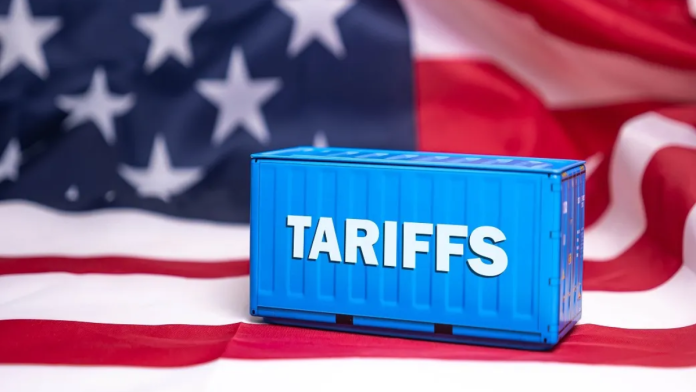The United States has warned that it could increase secondary tariffs on India if upcoming talks between President Donald Trump and Russian President Vladimir Putin in Alaska do not succeed. India currently faces a total of 50% US tariffs on its exports to America.
President Donald Trump and Russian President Vladimir Putin are scheduled to meet this Friday in Alaska, a location chosen as neutral ground between the United States and Russia. The meeting aims to address the ongoing Russia-Ukraine conflict and explore potential steps toward ending the war.
At present, there is a 25% baseline tariff on Indian goods. An additional 25% tariff has been placed specifically because of India’s crude oil trade with Russia. This extra tariff, according to US officials, is meant to pressure Putin into ending the ongoing conflict in Ukraine.
The US believes that by targeting countries buying Russian oil, it can cut off funds that it says are fueling the war. India and China are currently the two largest buyers of Russian crude oil in the world.
Transactions for Nayara Energy halted as India’s largest bank falls under tariff pressure
US Treasury Secretary Scott Bessent said that if the talks in Alaska do not go well, sanctions and secondary tariffs could be raised even further. He added that Washington could either relax or tighten these measures depending on how Friday’s meeting between Trump and Putin turns out.
India’s Oil Trade in the Spotlight
India is the third-largest oil consumer globally. Since the start of the Russia-Ukraine conflict in 2022, it has increased its imports of Russian crude oil. The main reason for this shift is the deep discounts offered by Russia.
Before the conflict, India mainly relied on oil imports from the Middle East. However, the US and its allies later set a $60-per-barrel price cap on Russian oil to limit Moscow’s income. India has continued buying Russian oil, saying that these imports are necessary for its energy security and for meeting the needs of its 1.4 billion people.
From Malacca to Zhoushan: India’s diesel cargo takes a sanction-driven detour
The 25% secondary tariff on India’s crude oil trade with Russia is set to take effect on August 27. This gives both countries about three weeks to potentially negotiate before the higher duties are applied.
In response to the US decision, India’s Ministry of External Affairs said that it is “extremely unfortunate” that additional tariffs are being imposed. The ministry stressed that India’s imports are based on market factors and national interest. It also said that these US actions are “unfair, unjustified, and unreasonable” and vowed to take necessary steps to protect India’s interests.
US Urges Europe to Join Tougher Measures
Bessent has also called on European nations to take stronger action against countries trading with Russia, including China. He said that Europe should “put up or shut up” when it comes to imposing secondary tariffs.
UK expands fast-track deportation scheme to include India for foreign criminals
He expressed frustration that at a recent Group of Seven meeting attended by Trump, Bessent, and other leaders, European countries were reluctant to commit to such high tariffs. He recalled that during the discussions, European officials often referred to a proposal by Senator Graham on secondary tariffs. But when asked if they were willing to impose a 200% secondary tariff on China, most avoided answering directly.
Since Russia’s invasion of Ukraine in February 2022, the US, Europe, Japan, and other nations have imposed multiple sanctions on Moscow. The European Union has already announced 18 rounds of sanctions, many of which target Russian energy exports.
Despite these measures, Washington is now pressing for an even tougher stance, warning that without global cooperation, countries buying Russian oil could face steep secondary tariffs.


